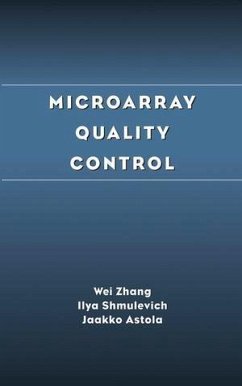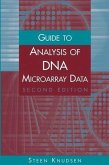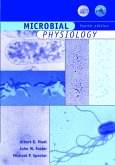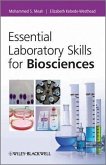Dieser Download kann aus rechtlichen Gründen nur mit Rechnungsadresse in A, B, BG, CY, CZ, D, DK, EW, E, FIN, F, GR, HR, H, IRL, I, LT, L, LR, M, NL, PL, P, R, S, SLO, SK ausgeliefert werden.
"The book may be recommended for all researchers and students working with the DNA microarray technology" (Annals of Biomedical Engineering, June 2005)
"...a useful source of ideas and potential issues." (Journal of the American Statistical Association, June 2005)
"This book is recommended [for] all libraries serving researchers using high-throughput techniques." (E-STREAMS, March 2005)
"...an essential laboratory resource for scientists studying gene regulation and for all experimental biologists interested in the emerging practical applications of microarrays." (Engineering in Life Sciences, Vol.5, No.5, 2004)
"...offers practical guidance for each stage of planning and execution of microarray studies..." (Genetic Engineering News, Vol. 24, No. 6, March 15, 2004)
"...the breadth of issues encompassed by quality control in microarray studies are covered...a valuable systematic treatment of microarray quality control." (Drug Discovery and Development, March 2004)
"...the breadth of issues encompassed by quality control in microarray studies are covered...a valuable systematic treatment of microarray quality control." (Drug Discovery and Development, March 2004)









